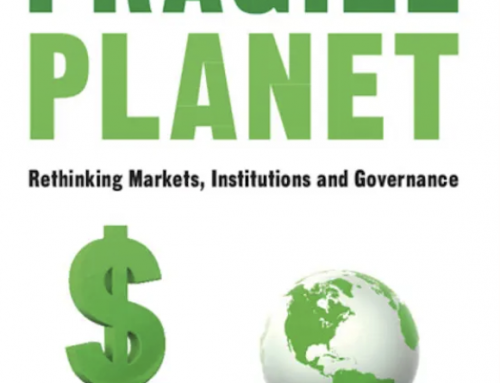Authentic Marketing – Larry Weber
The one sentence summary: Companies can capture hearts and minds through the power of purpose.
WHAT THE BOOK SAYS
- To achieve long-term value and capture true stakeholder engagement, companies must now embrace a higher purpose – something intrinsic in their DNA that addresses a pressing social issue such as climate change, world hunger or improving education or healthcare.
- Companies have been through several eras: production (1860-1920), sales (1920-40s), marketing (till the mid-90s), relationship marketing (to the 2000s), digital engagement, and now is the time for authentic marketing.
- Authentic marketing is a natural by-product of operating with higher purpose, as companies share compelling narratives about their work and purpose that appeal to the values of their customers.
- There is a four-part method:
- Explore values: does your company have a founding or core value?
- Pay products and services forward: who in the world would most benefit and can we set up a programme for them?
- Feed your audiences’ passions: what do they care deeply about?
- Take a stand: what harm do we cause and how could we change that?
- A new, integrated strategy model brings together business, technology, and engagement strategy – putting moral purpose at the centre of everything.
- Moral purpose is when a company works to address world issues.
- Moral code is a pledge to operate responsibly to minimize harm to the planet.
- A social purpose native company begins with one at the centre of everything it does.
- Social purpose immigrants (those that don’t) can definitely infuse it later.
- All of this is very commercially powerful. Consumers will pay more for products from socially responsible companies. Employee engagement is higher. Operational efficiencies can save up to 45% in costs. And capital markets tend to reward socially active firms.
- The CEO should be the lead voice of the business strategy and moral purpose, acting as Chief Values Officer. They should use plain language and avoid corporate speak.
- Move from storytelling to storydoing – show what your company is actually doing, then explain it…regularly. Data-telling is also important – show the data that verifies you are making progress.
WHAT I PARTICULARLY LIKED
- Consumers believe 16% of what companies tell them, and 52% of what an employee says about a company.
- 94% of consumers are likely to be loyal to a brand that offers complete transparency. But 70% of them will not even give even the most reputable companies the benefit of the doubt if something suspicious crops up.
- Millennials are a vital audience:
- 76% consider a company’s social and environmental commitments when deciding to work there
- 64% won’t take a job if a potential employer doesn’t have strong CSR practices
- 68% want to be known for making a positive difference in the world
- 78% want the values of their employer to match their own
- 85% would stay longer with an employer with a high level of social responsibility
- 83% would be more loyal to a company that helps them contribute to social and environmental issues.





